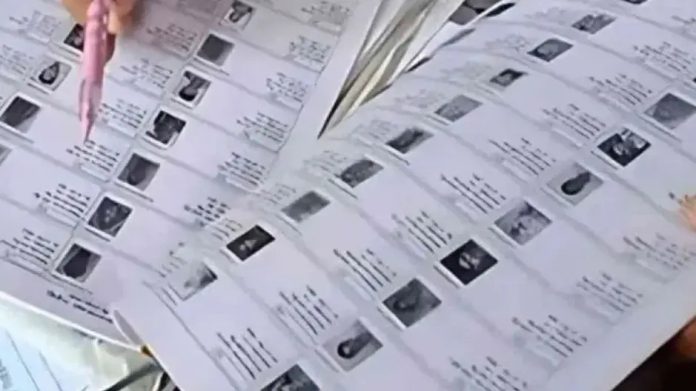Assam SR becomes the center of a political storm as the Election Commission skips Special Intensive Revision (SIR) and opts only for Special Revision (SR) ahead of Assam Assembly polls. Opposition questions ECI’s neutrality.
Guwahati | 18 November 2025
Qalam Times News Network
Assam SR: What the ECI Has Decided
Assam SR—this is the phrase that’s suddenly everywhere. The Election Commission of India (ECI) on Monday announced a Special Revision (SR) of the Assam electoral roll, confirming that the state will not undergo a Special Intensive Revision (SIR). And here’s the thing—this shift has triggered a fresh debate about why Assam is being treated differently.

Under the new Assam SR plan, Booth Level Officers will conduct door-to-door verification from 22 November to 20 December 2025. The integrated draft roll will be released on 27 December, and the final list will be published on 10 February 2026—just in time for the Assembly elections expected before May.
Why Skipping SIR in Assam Is Controversial
Opposition parties say the decision to skip SIR and bring in only Assam SR is suspicious because of the state’s sensitive history with the National Register of Citizens (NRC).
SIR involves rigorous house-to-house verification, with the primary goal of identifying and removing ineligible voters. It has been launched in several other states.
In Assam, where citizenship has been a burning issue for years and the final NRC list hasn’t been accepted by the state government, the absence of SIR is seen as a deliberate dilution of the “purification” process. Critics argue that SR—focused mainly on new additions—barely scratches the surface.
Opposition Calls It BJP’s “Double Game”
The opposition insists that the BJP is playing a double game. In Bengal, the party pushes for fast-track citizenship through the CAA. But in Assam, where migration is a highly sensitive political issue, the BJP has rejected the 2019 NRC list and demanded re-verification of names in border districts.
By avoiding SIR, the opposition claims, BJP escapes angering its core supporters who disliked the earlier NRC outcomes. At the same time, it avoids a politically risky deletion of voter names ahead of the 2026 election.
This feeds into the long-standing allegation that the ECI is working in sync with the ruling party—an allegation now revived by the Assam SR move.
SIR vs SR: What’s the Difference?
Special Intensive Revision (SIR)
- Door-to-door physical verification of every voter
- Focus on removing ineligible names
- Voters must provide proof; failure leads to deletion
Special Revision (SR)
- Similar to routine summary revisions
- Mainly adds new voters
- Objections or corrections depend on voluntary applications
- Existing names stay unless challenged
Legal Challenges to SIR and Assam’s Exemption
SIR is currently under challenge in the Supreme Court by several parties including ADR, IUML, DMK, and TMC. Petitioners argue that SIR crosses into citizenship verification—something only the central government can authorize.
In Bihar, the first phase of SIR resulted in deletion of over 68 lakh names. That raised alarms and intensified allegations of a hidden political agenda.
Assam was first declared exempt from SIR on 27 October, with the Chief Election Commissioner citing the state’s unique position under Section 6A of the Citizenship Act and the NRC process monitored by the Supreme Court.
Yet, despite spending over ₹1,600 crore, the 2019 NRC remains unnotified. The Assam government wants 10–20% re-verification of names and refuses to accept the list.
Meanwhile, BJP’s contrasting stance on citizenship in Assam and Bengal continues to inflame tensions as both regions head toward elections.







